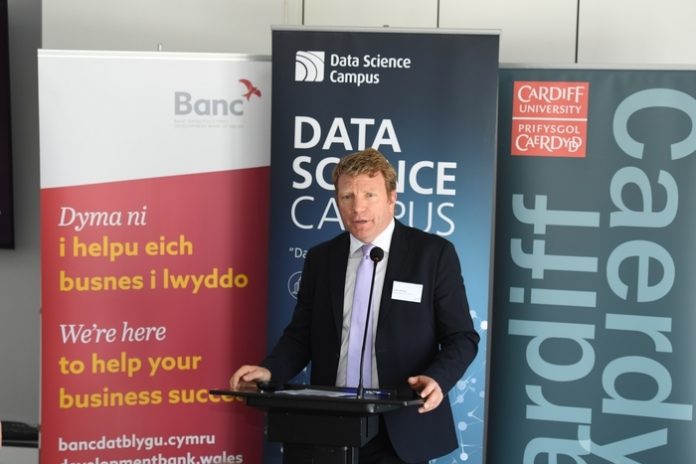Small to medium enterprises (SMEs) in Wales have higher levels of confidence than their UK counterparts, despite challenging business conditions and increasing uncertainty of UK and global economic prospects, according to the first annual report published by Economic Intelligence Wales (EIW).
The new research unit is a collaboration between Cardiff Business School, the Office for National Statistics and the Development Bank of Wales, created to monitor the activity of Welsh SMEs, factors affecting their development and the progress of the regional economy.
The development bank announced in May that it invested £80 million into SMEs in 2018/19 which is an increase of nearly 18% on the previous financial year. This is a strong demonstration of a growing appetite for investment, reflected in the increase in the number of Welsh SMEs using external finance which is 5% higher than the UK average.
This first annual report from EIW provides the baseline picture of Welsh SME activity and analyses the impact of investments made by the development bank.
Key findings include:
- Turnover in Welsh micro businesses declined by 20% in 2018 – slightly lower than the 21.5% fall recorded in the UK overall.
- By contrast, medium-sized enterprise turnover increased by 14% and these firms grew employee numbers by 4.3% giving an indication that they may have increased productivity in the period.
- Despite the Welsh Index of Production slowing in 2018, the Welsh Index of Construction output grew at an impressive 29%. The Construction sector was the largest recipient of investment by Development Bank of Wales in 2018/19, receiving £28 million. In the same period the number of new homes built in Wales has increased by 22%.
- The proportion of Welsh SMEs estimated to be at high credit risk increased from 3.9% in June 2018 to 6.7% in May 2019.
- 41% of Welsh SMEs have accessed external finance in comparison to the UK average at 36%.
- Similarly, 53% of SMEs in Wales plan to grow during 2019 compared to a lower 50% in the UK.
- Every £1 million of development bank investment equates to an estimated £2.3 million of Welsh Gross Value Added (GVA).
Welcoming the publication of the report, Giles Thorley, Chief Executive, Development Bank of Wales, said: “At the EIW launch I talked about how accurate and timely assessments of the state of the Welsh economy are critical for us to provide financial support to entrepreneurs and micro, small and medium-sized businesses. EIW has started delivering just that.
“EIW’s findings throughout the year highlight the real effects of uncertainty and a rapidly changing economy. This regularly produced, relevant data will be crucial to help us support the economy and maximise our impact on Wales.
“The need for a deeper and more holistic understanding of the unique issues facing the Welsh economy and its SMEs will endure. EIW will continue to work with partners, encouraging feedback and collaboration to inform decisions to improve the Welsh economy and the well-being of future generations”.
Max Munday, Director of Welsh Economy Research Unit at Cardiff Business School said: “In the current climate of business uncertainty it is critical we keep a close watch on the activity in our Welsh SMEs, and how changing macro-economic and international factors affect prospects in different sectors of the regional economy. It was encouraging to report on positive economic outcomes from Development Bank activity in 2018/19 particularly in terms of employment created and safeguarded in the Welsh economy”.




















